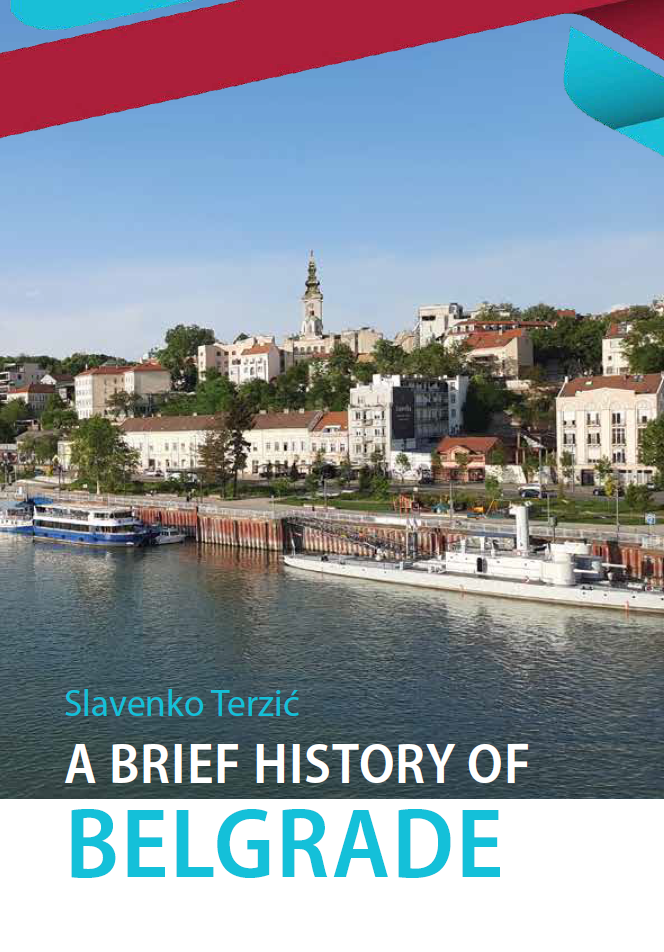80th anniversary of the Nazi bombing of Belgrade
April 6 marks the 80th anniversary of the bombing of Belgrade and the attack of Nazi Germany on the Kingdom of Yugoslavia in the Second World War.
On that occasion, the Russian Center for Science and Culture "Russian House" in Belgrade, in cooperation with the City of Belgrade, is organizing a special program in memory of this tragic event.
A memorial service for the innocent victims of the April bombing will be held in the Church of the Ascension, starting at 8:30 AM. Then, at 9.30 am, with the participation of representatives of the city authorities, the Russian Embassy in Serbia, the Russian Military Attaché in Serbia, and the Russian House, wreaths will be laid at the Memorial Cemetery for the victims of the 1941 bombing and fallen Russian defenders of Belgrade.
The central event will be held on Republic Square at 1 pm, when an exhibition will be opened in memory of one of the saddest days in Serbian history - April 6, 1941. At the exhibition, prepared by the Russian House with the support of the City of Belgrade, Immortal Regiment Serbia Foundation and the DADOV Youth Theater will present thematic works by famous Serbian artists, graduates of the School of Comics, illustrations and concept art "George Lobachev" from Belgrade. The school is named after a Russian painter, one of the pioneers in the history of Serbian and Yugoslav comics.
On the occasion of the anniversary, symbolically on April 6, an online conference "In the footsteps of the ancestors, in the footsteps of victory" will be held, which is jointly organized by the Immortal Regiment Serbia Foundation and the Russian House in Belgrade.
A photo-documentary exhibition of archival materials from the collection of the Museum of the City of Belgrade will be presented on the display case of the Russian House. Some of the photos will be presented for the first time. The exhibition is accompanied by virtual content that will be available by scanning the QR code.
Historical review:
"I especially order: that as soon as the concentration of forces is completed and as soon as the meteorological conditions allow, all Yugoslav surface plants, as well as Belgrade itself, must be destroyed by continuous day and night air attacks" (From Hitler's Directive 25).
On the early Sunday morning, April 6, 1941, at exactly 6:30 AM, the sleeping capital woke up in a nightmare brought by German aviation, showering the city with 440 tons of bombs. An insidious attack without warning covered the faces of the people with horror. The bombing of Belgrade has begun.
The bombing of the capital was placed under the command of Colonel Alexander Lehr, who personally received a special order from Hitler - first to demolish the National Library, an institution that kept what had been the cultural identity of the people for centuries, and only then strategically important buildings. The Patriarchate was in the fire, the Church of the Ascension was severely damaged, and some believers came in the morning.
Russian cultural institutions were also targeted by the occupiers. During the bombing in April 1941, the building that housed the Institute for Russian Church History, Byzantine Studies, and Archeology "Kondakov" with a rich library and editorial office was destroyed. During the April bombing, doctors at the Russian Red Cross polyclinic provided free assistance to wounded and sick citizens, regardless of whether they were Russians or Serbs.
The exact number of people who lost their lives in this horrific act of aggression has never been determined exactly, but it is estimated that between 2,271-4,000 people were killed.
A memorial cemetery (author architect Milica Momcilovic) was erected at the New Cemetery in 1966 for all the victims who died in the bombing of Belgrade on April 6, 1941. Here, on the Russian part of the New Cemetery, the grave of Vladimir Shelj, a young Russian lieutenant, who died a heroic death in his twenty-second year of life to stop a German tank column, is preserved. Shel was one of the many representatives of the Russian emigration who fought heroically for the freedom of the capital of Yugoslavia and its inhabitants.













